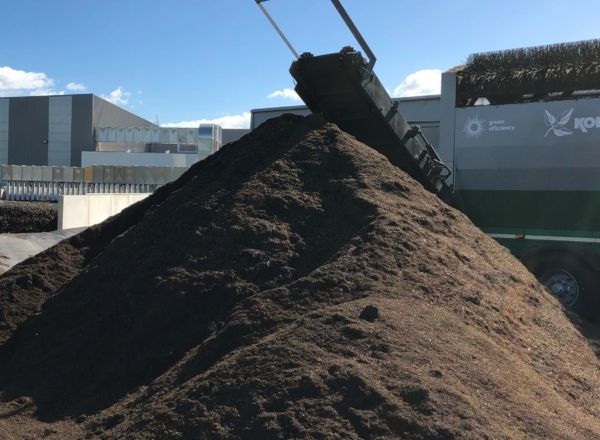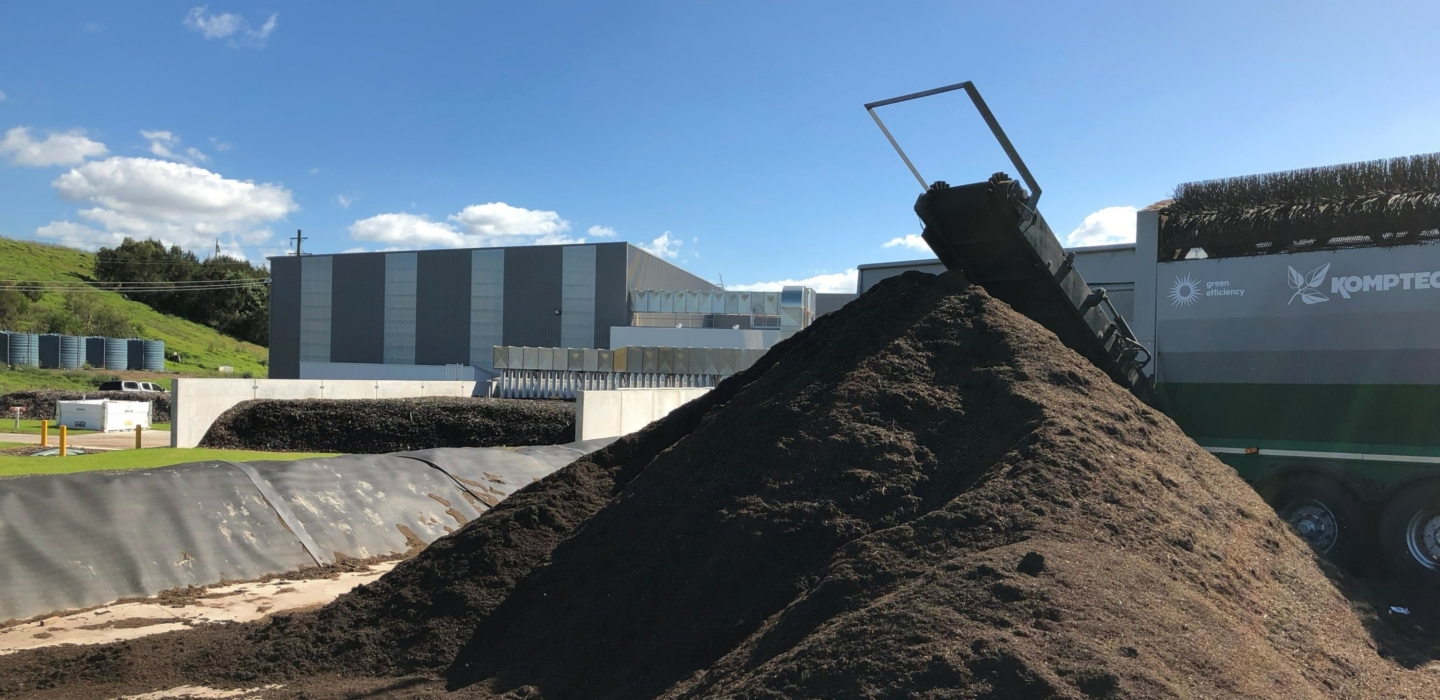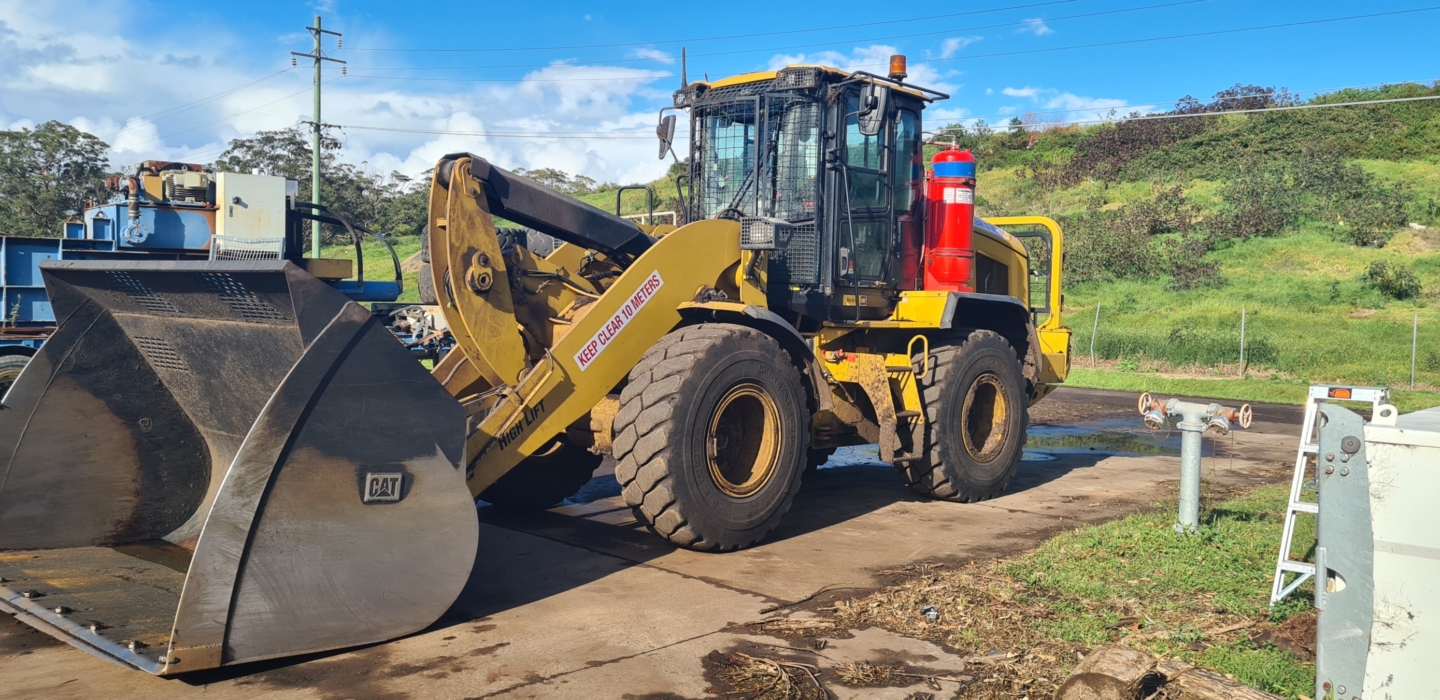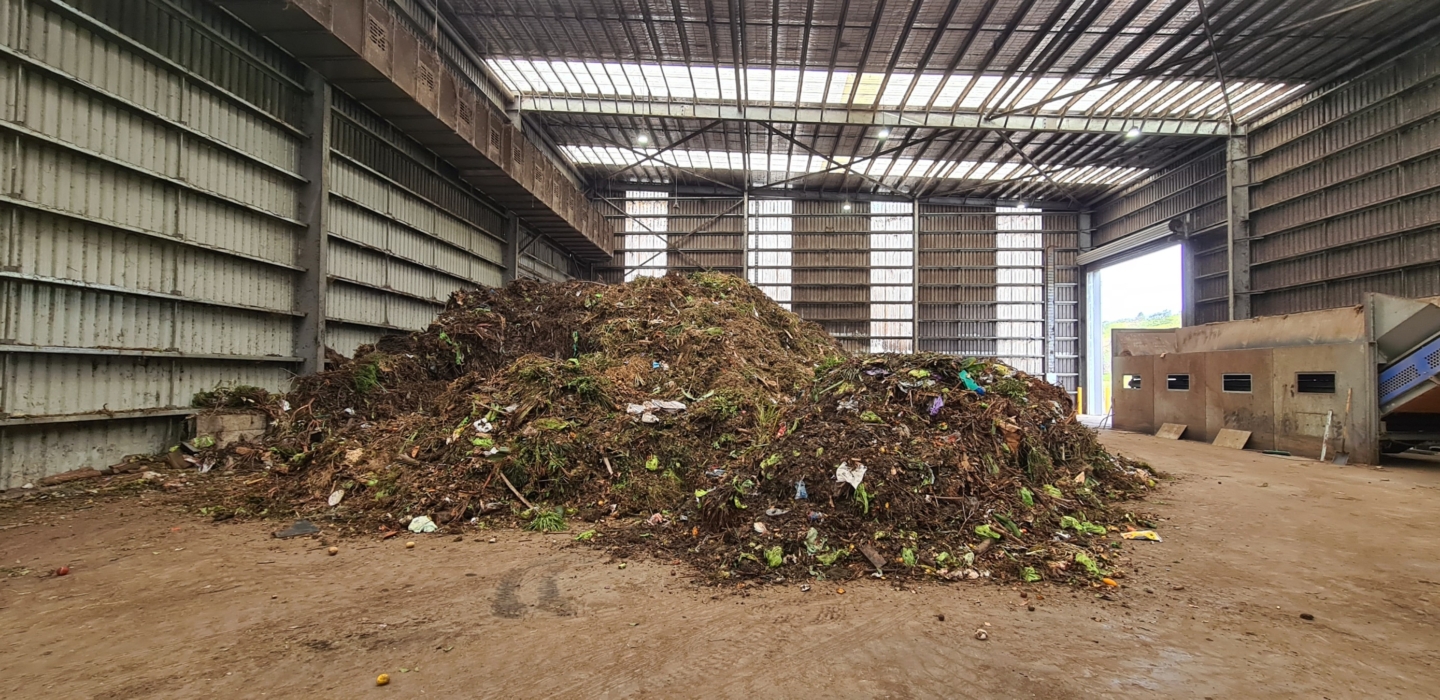
When the community recycles organics through the Green Bin, these resources are recovered to create new products and help form a circular economy. Deposited Food Organics and Garden Organics are recovered into high quality compost products.
Re.Group Food Organics and Garden Organics (FOGO) processing facilities are designed to efficiently maximise recovery and restore nutrients back in to Australian soils.

GREENHOUSE GAS EMISSIONS
AND IMPROVES SOILS


FOGO Compost
What food and garden organics can be recycled?
The food and garden organics that can be recycled through the green bin include leftover food, garden cuttings and natural animal and plant based materials. FOGO can be recovered and used to improve local soil productivity rather than sent to landfill where they create significant methane greenhouse gas and odour emissions.
How are food and garden organics recycled?
1. Collection
Food and garden organics are collected from homes and businesses through the green bin and delivered to a nearby FOGO processing facility.
2. Decontamination
The materials are sorted to remove any contamination such as plastic bags, non-compostable packaging and general waste.
3. Shredding and mixing
The remaining FOGO is shredded to form smaller pieces to produce the best mix for composting before being loaded into enclosed concrete tunnels.
4. Composting
In the tunnels oxygen and moisture levels are controlled to create the perfect composting conditions which pasturises material to kill weeds and pathogens. Naturally occurring micro-organisms in the FOGO are encouraged to grow with the right combination of water and air.
5. Screening and grading
The compost is screened and sorted into different size grades.
6. Final compost product
Our FOGO facilities create high quality compost products, suitable for agricultural, horticultural and residential markets.
